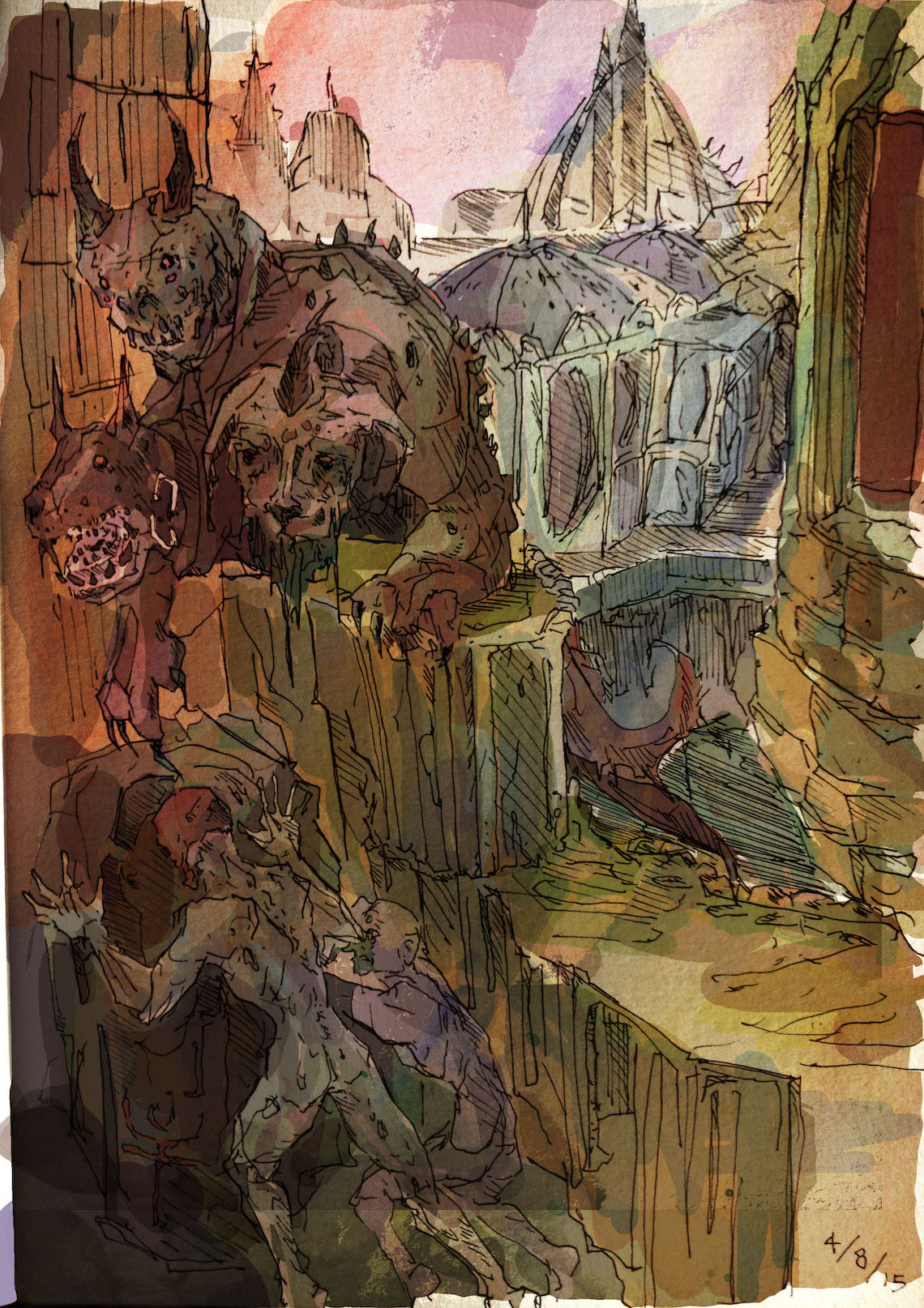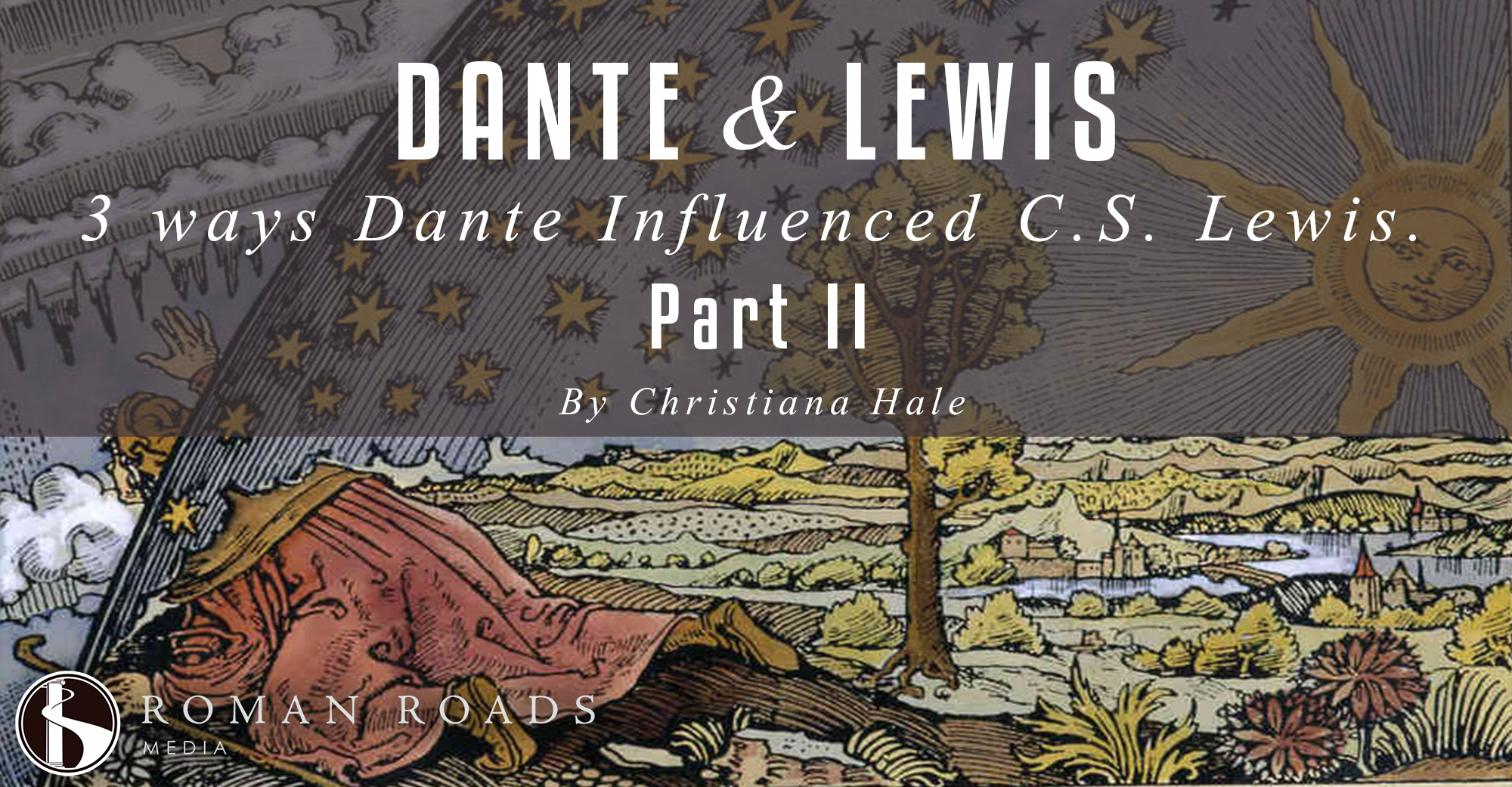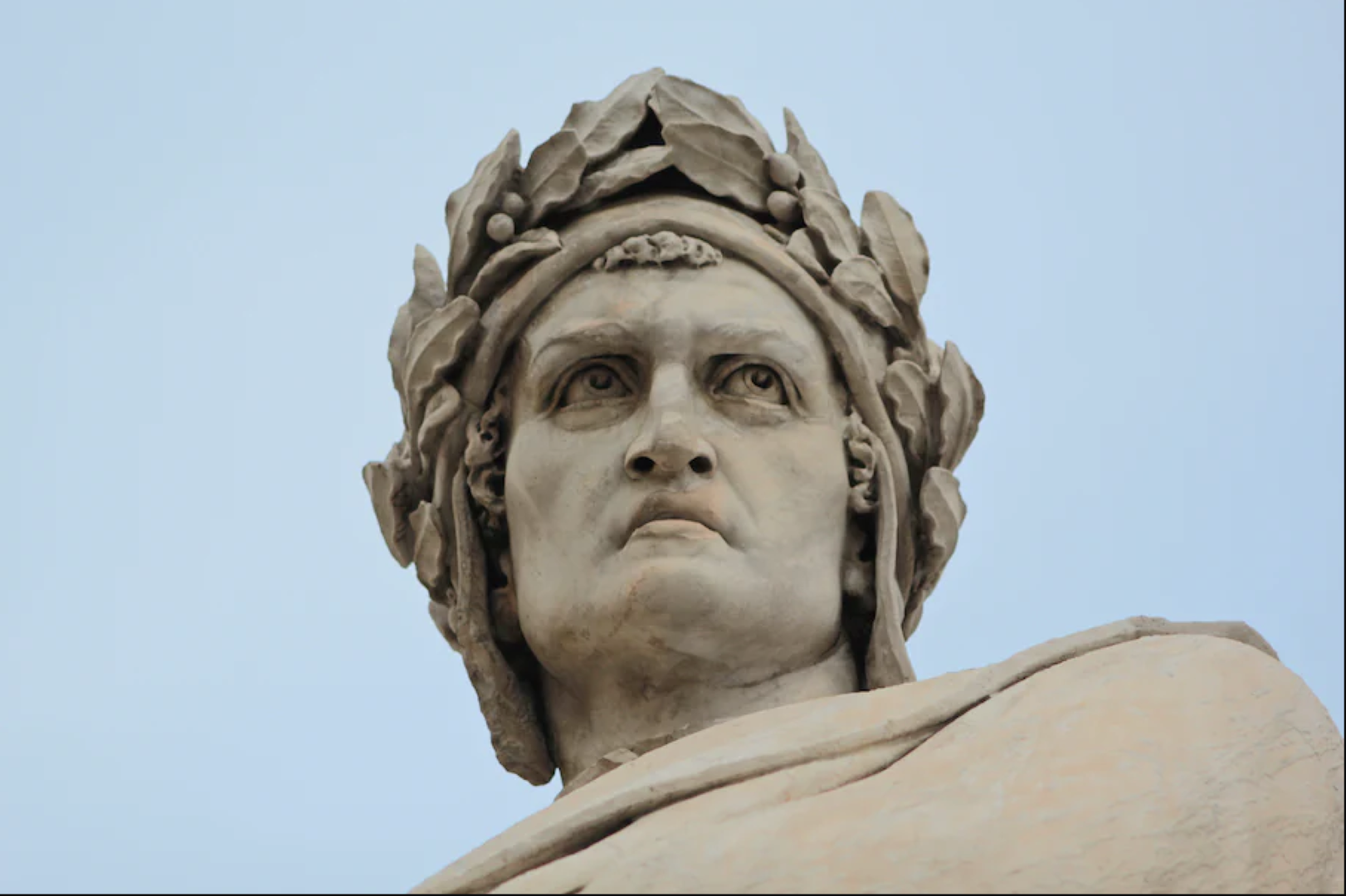Monaramis’s depictions of Dante Alighieri’s Inferno feature an array of muted colors that stem from an earthy palette. These are layered over the black contour of the scene (which appears to have been drawn by hand). The composition focuses on Cerberus as it imposes over a historical monument, seemingly intent to sniff out the two figures hiding in the foreground. The line-work of this piece is sketchy and heavily gestural, which reinforces the dynamism of the Canto depicted. — Monaramis Art, “Dante’s Inferno— La Divina Commedia,” Behance, 2015 (Retrieved March 28, 2024).
“3 More Ways Dante Influenced Lewis | Part II”
“If you read my last post and are ready for more specifics on the ways in which C.S. Lewis was influenced by Dante Alighieri’s Divine Comedy in the writing of his Ransom Trilogy, you have come to the right place. The first part of this post can be found here and I do recommend reading that first by way of introduction. And off we go!
“Devils in Disguise: Hell on Malacandra As I said in part 1 of this post, there is a sense in which the trajectory of the Ransom Trilogy both parallels and contrasts that of Dante’s Comedy. Heaven and Hell each get thicker as you go through the Trilogy until they meet, at last, on the Silent Planet in the third book, That Hideous Strength. In this part, however, I am focusing on the parallels between the Inferno, Purgatorio, and Paradisio that exist with each book of Lewis’ trilogy.” —Christiana Hale, “3 More Ways Dante Influenced Lewis | Part II,” Roman Roadspress, June 26, 2015 (retrieved March 26, 2024)
“How Dante Can Save Your Life: The Life-Changing Wisdom of History’s Greatest Poem,”First Things Blogpost
“In 2011, Rod Dreher returns to his hometown in West Feliciana Parish, Louisiana, after years living elsewhere in pursuit of a (highly successful) journalistic career. Now middle-aged, he hopes to find a more authentic community than he has in big cities and to draw close to the family from which he has been estranged. Instead, he falls into a kind of depression—the combined effect of resurgent stresses within the family, the death of his sister Ruthie from cancer, and the Epstein-Barr virus—which causes fatigue, the need for large amounts of sleep, and no little turmoil over how to work his way out of the dark place in which he finds himself.
“He turns for help to the pastor at his local Orthodox church for spiritual counseling, as well as to a Christian psychologist. But as he recounts in this deep and moving memoir, an utterly unanticipated source of guidance came to him unbidden. As he is browsing in the poetry section of a bookstore one day, he stumbles onto a translation of Dante Alighieri’s Divine Comedy, which tells of a pilgrimage from a threatening and dark wood through Hell, Purgatory, and the Heavens to the Beatific Vision. For some reason, that medieval Florentine poet threw a spiritual lifeline to this modern American writer.
“The title of the book that resulted, How Dante Can Save Your Life, may seem exaggerated, in the way of recent books like Alain de Botton’s How Proust Can Change Your Life. It is. Dante can’t save you. Only God can. In our postmodern culture, there’s recently been a raft of works that look to tony literary sources for meaning and substance in a world that seems to have obliterated both. But don’t be deceived by superficial resemblances. Dreher’s book is much more deeply rooted in theology—and reality—than are those other efforts.” —Rod Dreher, “How Dante Can Save Your Life: The Life-Changing Wisdom of History’s Greatest Poem,” First Things, June 2015 (retrieved on March 24, 2024)
“The Divine Comedy is the most practical Great Book ever written”

“The Commedia has to be the most practical Great Book ever written. Dante the poet wrote a letter to a friend in which he said he created the Commedia to help his readers understand why they suffer, and how they can be released from that suffering, because he too had been on that trail of tears, which God turned into a road that bound him for glory.
“Dante’s method works, and it works because his extraordinary poem, seven centuries old, is not really the pilgrimage of an exiled Tuscan through the afterlife, but a journey for every reader into his or her own heart — as it is, and as it can be through the astounding grace of God.” —Rod Dreher, “The Divine Comedy is the most practical Great Book ever written,” National Review, March 31, 2015 (retrieved March 20, 2024)
“10 commandments for a successful life, according to Dante”
“Most people think of Dante’s [The Divine Comedy] as a medieval literary artifact, a classic more admired than read. Believe it or not, it’s the greatest self-help book of all time.
“Two years ago, lost in a serious personal crisis, I stumbled upon the Commedia, as it is called in the original Italian, while browsing in a bookstore. I’m not much of a poetry reader, and Dante’s 14,000-line work is the last place I would have thought to look for life coaching.
[. . .]
“All of us will find ourselves in a personal dark wood at some time in our lives. Here are Ten Commandments from the epic poetic trilogy that includes Inferno, Purgatorio and Paradiso that can help us find our way out.
[. . .]
“1. Be honest with yourself about your failings, 2. Do not make wealth and accomplishment the measure of your success, but rather virtue and compassion, 3. Cultivate humility and gratitude, 4. Harmony is more important than equality, 5. Acknowledge limits, and live by them, 6. Reconcile yourself to the truth that some questions can never be satisfactorily answered, 7. Think of sin as a failure of love, 8. Master your passions, or they will master you, 9. Don’t mistake icons for idols, 10. Follow trusted teachers and mentors” —Rod Dreher, “10 commandments for a successful life, according to Dante,” Washington Post, April 6, 2015 (retrieved March 6, 2024)
- 1
- 2
- 3
- …
- 22
- Next Page »




